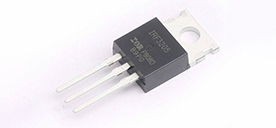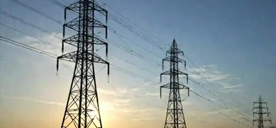Learn the key differences between 5G and 4G
2024/2/28 9:41:08
Views:
The main differences between 5G and 4G lie in speed, latency, bandwidth, connection density and security. The speed of 5G can reach 10Gbps, the latency is less than 1 millisecond, it can support more than 1 million device connections per square kilometer, and uses more advanced encryption technology and authentication mechanisms to protect user privacy and data security. In comparison, 4G has lower speeds and latency, smaller bandwidth, lower connection density, and relatively weak security.
5G application scenarios include enhanced mobile broadband (eMBB), ultra-reliable low-latency communications (uRLLC) and machine-type communications (mMTC). eMBB provides mobile Internet users with a more extreme application experience; uRLLC meets the application needs of vertical industries with extremely high requirements on latency and reliability; and mMTC meets the application needs targeting sensing and data collection.
5G technology brings many conveniences to people's lives and work, and also provides new opportunities for the development of all walks of life. With the continuous popularization of 5G technology, people will enjoy faster, more stable and safer mobile communication services, and it will also promote the development and application of emerging technologies such as the Internet of Things and artificial intelligence.
4G is the fourth generation of mobile communication technology, with slower speed, higher latency, smaller bandwidth, lower connection density and weaker security. It can provide high-quality video image transmission and technical products equivalent to high-definition television, with speeds of 100Mbps download and 20Mbps upload. 4G can provide wireless services on different platforms and networks across different frequency bands, supporting functions such as positioning, data collection, and remote control.
The difference between 5G and 4G mainly lies in speed, latency, bandwidth, connection density and security. 5G offers faster speeds, lower latency, greater bandwidth, higher connection density, and stronger security. 5G has a wider range of application scenarios, bringing more convenience to people's lives and work, and also promoting the development of all walks of life.
5G application scenarios include enhanced mobile broadband (eMBB), ultra-reliable low-latency communications (uRLLC) and machine-type communications (mMTC). eMBB provides mobile Internet users with a more extreme application experience; uRLLC meets the application needs of vertical industries with extremely high requirements on latency and reliability; and mMTC meets the application needs targeting sensing and data collection.
5G technology brings many conveniences to people's lives and work, and also provides new opportunities for the development of all walks of life. With the continuous popularization of 5G technology, people will enjoy faster, more stable and safer mobile communication services, and it will also promote the development and application of emerging technologies such as the Internet of Things and artificial intelligence.
4G is the fourth generation of mobile communication technology, with slower speed, higher latency, smaller bandwidth, lower connection density and weaker security. It can provide high-quality video image transmission and technical products equivalent to high-definition television, with speeds of 100Mbps download and 20Mbps upload. 4G can provide wireless services on different platforms and networks across different frequency bands, supporting functions such as positioning, data collection, and remote control.
The difference between 5G and 4G mainly lies in speed, latency, bandwidth, connection density and security. 5G offers faster speeds, lower latency, greater bandwidth, higher connection density, and stronger security. 5G has a wider range of application scenarios, bringing more convenience to people's lives and work, and also promoting the development of all walks of life.
Related Information
-
-
Phone
+86 135 3401 3447 -
Whatsapp





